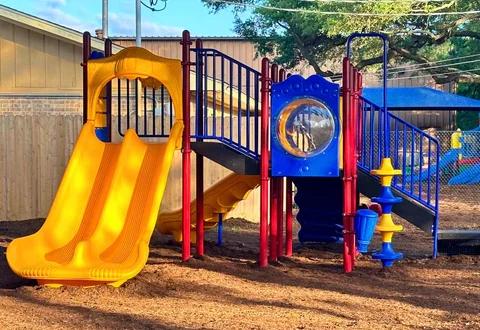Caring for young children can be rewarding but also challenging. If you are a parent, a babysitter, or work with young children, the right strategies can help them feel secure and confident and grow emotionally and physically.
These 10 tips from experts will help support the healthy development of toddlers and preschoolers.
1. Create Consistent Routine
The structure is important for children. Children thrive on structure.
Tip: Try to keep the schedule of meals, naps, playtimes, and bedtimes as consistent as you can, even on weekends.
2. Open-ended Play
Allow children to explore their imaginations without imposing strict rules or outcomes. Open-ended games encourage creativity, independence, and decision-making.
Play with blocks, pretend play supplies, art materials, or sand & water.
3. Talk and listen often
Early language development is rapid. Ask questions and listen to the answers.
Tip: Narrate actions (“I am cutting the apple right now”) to naturally build vocabulary.
4. Serve Nutritious and Child-Friendly Food
Healthy eating fuels learning and behaviour. Serve balanced meals that include fruits, vegetables and whole grains.
Bonus tip: Get children involved in the meal preparation process. They will be more willing to try new foods.
5. Give One-on-1 Attention
Even a few focused minutes can make a huge difference.
Tip: No distractions. Read a book together, cuddle or build a toy tower.
6. Use Positive Discipline
Use respect to guide behaviour, not punishment. Clear boundaries, redirection and calm communication are all effective ways to guide behaviour.
Instead of saying “Don’t strike”, say:
7. Prioritize sleep and naps
Sleep deprivation can lead to irritability, lack of focus and behavioural problems. Keep sleep schedules appropriate for your age.
Average needs:
- Toddlers: 11-14 hours/day
- Preschoolers: 10-13 hours/day
8. Teach Basic Hygiene Habits
Early routines such as handwashing and brushing teeth are important.
Have fun with it: Use songs and visual charts to encourage independence.
9. Keep the environment safe
Check for sharp or choking objects and childproof areas.
Tip: Get down on the level of your child to identify potential dangers.
10. Show the behaviour you want to see
What you do, not what you say, is what children learn from. They will follow you if you are calm, kind and curious.
Final Thoughts
Child care is about patience, guidance, and connection. By caring for children with love, consistency, and intention, we can help them build a foundation of health and happiness.





